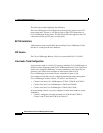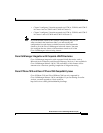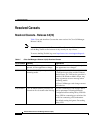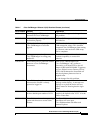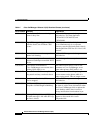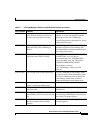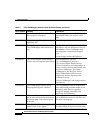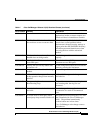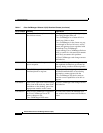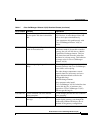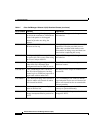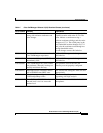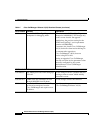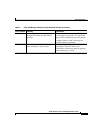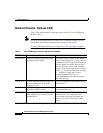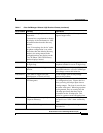
Resolved Caveats
26
Release Notes for Cisco CallManager Release 3.0(10)
78-13493-02
CSCdt94077 Device tables do not update correctly
after failover occurs.
Calls going out through a digital gateway
were being dropped after one
Cisco CallManager in a cluster fails in a
certain way (links to other
Cisco CallManagers in the cluster stay up,
even though its devices fail over), and its
phones and gateways have registered with
the backup Cisco CallManager.
A user running Cisco CallManager Release
3.0(8) or earlier in a clustered environment
more likely encounters this problem.
A Cisco CallManager code change corrects
this behavior.
CSCdt94179 Redirect fails, and subsequent redirect
gets no response.
A Cisco CallManager code change ensures
that orphaned destinations get cleaned up
properly during a redirect of the originator.
CSCdt95027 Cisco CallManager does not allow
simulated phones to register.
Any device, which during registration sends
the MaxFramePacketSize as zero during
registration, cannot register with the
Cisco CallManager.The device needs to
send the correct capabilities to be able to
register.
CSCdt95612 When a user right-clicks on the backup
utility icon in the task tray, then clicks
somewhere on the desktop, part of the
popup menu remains on the screen.
A Cisco CallManager code change corrects
this behavior.
CSCdt95934 After Cisco CallManager is upgraded,
the Cisco CallManager server IP
address changes to the
Cisco CallManager DNS name.
To correct this caveat, the database layer
now resolves the host name and IP address
better.
Table 2 Cisco CallManager Release 3.0(10) Resolved Caveats (continued)
DDTS Number Summary Explanation



